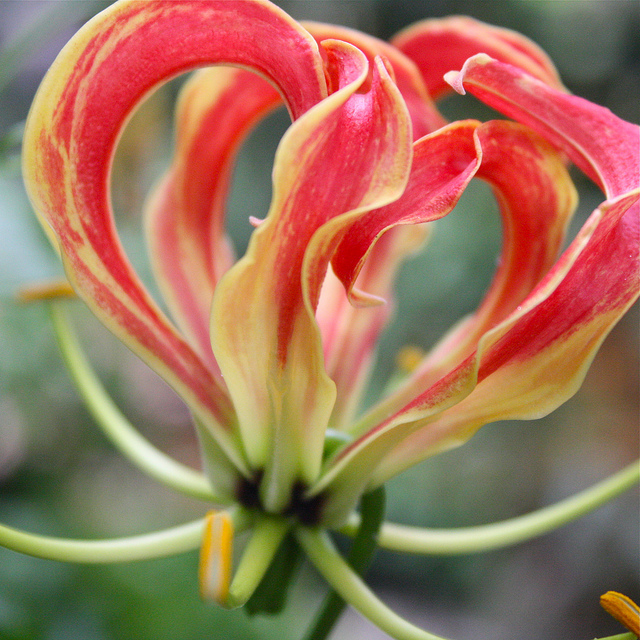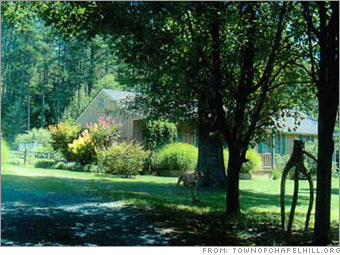The bags are packed, Fido’s been dropped off at canine camp, Aunt Martha has agreed to watch the budgie, and you’re ready to head off to the beach or the mountains. But what about your landscape and garden? How does one prepare them for vacation?
If you can find a competent and trusted friend or neighbor to care for your property while you’re away, that will be easier and more effective than trying to compensate for your absence in other ways. If you can return the favor while your friend or neighbor is away, so much the better.
Weeding can be put off, as can pruning and most other plant maintenance chores, but lawn mowing shouldn’t wait for your return. If you’ll be gone for a couple of weeks or more, you should arrange to have someone mow your lawn. The trimming and edging can wait for your return, but letting your grass grow long and then cutting it drastically can stress the lawn and stunt its root system. For the health of the lawn, when you mow, you shouldn’t cut off more than a third of the grass’s height. For example, if your grass is best maintained at 2” (see www.clemson.edu/extension/hgic/plants/landscape/lawns/hgic1205.html), then cut it before it grows taller than 3”. If your grass has grown taller than 3”, you should lower the height gradually over more than one mowing, not removing more than one-third of the height at each cutting and waiting two or three days between mowings.
When you’re on vacation or away from home for more than a few days should be the only time you’ve got your irrigation system on its timer (unless your system has a moisture sensing override). We’ve had frequent enough rains this year that I’ve only needed to run my irrigation system three or four times. One of those times was on a rainy day—because I’d forgotten to turn off the system’s timer after being out of town. That’s the problem with leaving the irrigation system on its timer—it will likely run on days you don’t need it, wasting water and increasing the probability of fungal diseases infecting your lawn. When you’re home, keep the timer off and turn on the system only when it’s needed. When you’re on vacation, consult the long-term forecast, and then set the system to water your lawn once every three to four days when rain is not expected. For those of you without an irrigation system, battery powered programmable timers for your hose (or a drip system) are available for $25 and up.
This time of year potted plants and container gardens might need watering once a day, or even more. Prior to your departure, move them into a shady location, preferably one that will be covered by the sprinkler system. You can find adapters that screw onto soda bottles that allow them to act as a water reservoir for pots (I don’t see any reason you could use these on plants in the ground as well). It might be worthwhile investing in a small drip irrigation system and a timer to deliver water to your plants. Basic drip systems for containers can be purchased in all-in-one kits for less than $10. Mulch can also help containers (and the ground) retain moisture.
A friend or neighbor is going to be the best way to care for a vegetable garden in your absence. Weeding can be put off for a couple of weeks, or even longer, but produce left on the plant without being harvested will rot and may lead to disease. An offer of free produce may be all the incentive a neighbor needs to harvest your garden. Before heading out of town, harvest any produce close to being ripe and do a thorough clean-up, removing dead leaves, etc. If you can find an experienced gardener to care for things, your garden will be better off, but a few minutes of instruction will enable a novice to water your garden and properly pluck your produce.





